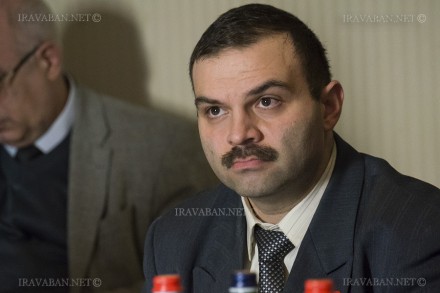Armenia has recorded drawback in the Corruption perception Index 2015 published by Transparency International Anti-Corruption Organization. Our country has ranked 95th. In 2015 Armenia had scored 35, in 2014. That is to say in 2015 Armenia’s index is 35 points, whereas in 2014 it was 37.
Director of Yerevan Anti-Corruption Center, Member of Board of the Armenian Young Lawyers Association, Advocate Marat Atovmyan has some reservations on to such sociological surveys, “First, not all respondents in such cases correctly understand what corruption is. Often, they understand and perceive the issue differently due to listening about it from different persons and as a result of these subjective factors form understanding of this issue,” Mr. Atovmyan said and added that he personally had tried to understand the people’s logic, “I was talking with a citizen who argued that the judiciary is completely corrupt. I asked him whether he had ever dealt with the judiciary. It turned out that he had never dealt. I asked why then he insists that this system is corrupt. He said that he had heard from different people.”
As for the index, Marat Atovmyan said that the fact is explained by the circumstance that no radical changes were made in the fight against corruption in our country. “Naturally, some steps are being taken, but I do not consider them radical, which are required for recording any major success. In my opinion, if the reforms are not of complex and fundamental nature, we shall not have any positive dynamics in terms of the reduction of corruption.”
We asked Mr. Atovmyan whether the Anti-Corruption Council, which was established in 2015 and is expected to actively work this year, could be the source of such radical change. He said, “I have insisted since the very beginning that time for the creation of independent body, which would deal with fight against corruption in various direction in Armenia has come to being long ago. A couple of days before the relevant working groups, which would consider the issues of establishment of the similar body and the necessity of criminalization of the illicit enrichment, have been created. This work will form an opinion on which model would be more efficient for Armenia,” our interlocutor said.
In reply to our observation that in some countries, which recorded progress in fight against corruption such bodies are endowed with investigative functions, the advocate said, “Yes there are different models. There are bodies that can conduct investigative and operative-detective functions. Also, there are countries which did not provide such functions to these bodies. However, equally important are analyses, anti-corruption education, conducting monitoring, and the everyday work with the society that is carrying out anti-corruption advocacy. These are also important activities that have not been addressed,” Marat Atovmyan stressed.































